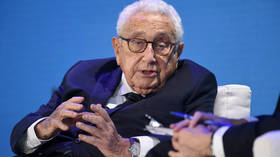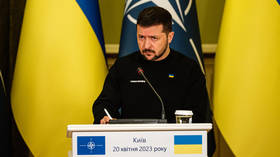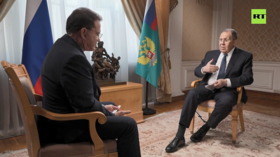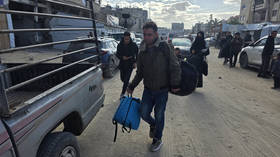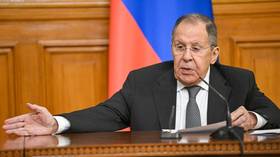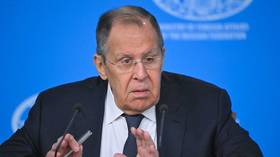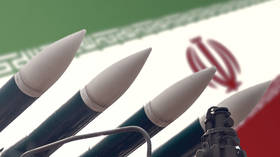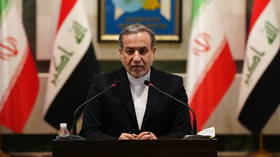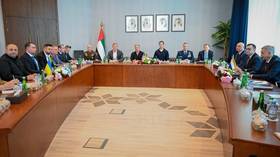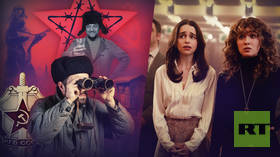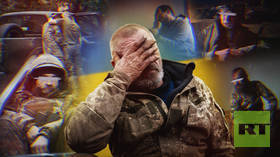Kissinger changes stance on Ukraine joining NATO
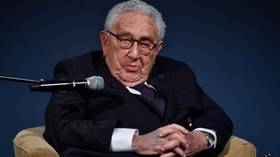
Former US secretary of state Henry Kissinger has signalled a U-turn in his views on prospective NATO membership for Ukraine. The veteran politician told The Economist that he now believes peace in Europe cannot be achieved without Ukraine entering the US-led military bloc.
However, his reasoning is at odds with mainstream pro-Ukrainian thinking on the subject. Kissinger believes that adding Kiev to NATO will prevent its politicians from seeking to act unilaterally over territorial claims.
Last fall, Kissinger insisted that “it was not a wise American policy to attempt to include Ukraine into NATO.” He said the bloc’s eastward expansion since the fall of Soviet Union in 1991 had essentially removed Russia’s historic buffer zone, but insisted that was no justification for Moscow’s “surprise attack” on Ukraine.
However, in his interview on Wednesday with the British outlet, the politician, who turns 100 on May 27, suggested that “for the safety of Europe, it is better to have Ukraine in NATO.”
He acknowledged that he currently finds himself “in the weird position where people can say, ‘Look at him, he’s changed his mind. Now he’s for membership of Ukraine in NATO.’”
The reason for such shift is because “we [the West] have now armed Ukraine to a point where it will be the best-armed country and with the least strategically experienced leadership in Europe.” He added that he believes it's also in Russia's interests for Kiev to be under the bloc's formal control.
Kissinger explained that “If I talked to [Russian president Vladimir] Putin, I would tell him that he, too, is safer with Ukraine in NATO.”
According to the former US Secretary of State, the position taken by some Western European countries towards Kiev’s membership is “madly dangerous.”
“The Europeans are saying we don’t want them in NATO because they’re too risky. And therefore, we’ll arm the hell out of them and give them the most advanced weapons. How can that possibly work?” he asked.
Back in 2008, NATO declared that Kiev would join the bloc, but did not specify a date for that to happen. “I thought that the decision to leave open the membership of Ukraine in NATO was very wrong. It was unwise, because if you looked at it from the Russian point of view, in 1989, they controlled Europe up to the Elbe River. They then withdrew from there” Kissinger said.
The possibility of Ukraine, which the Russians consider “the little brother closest to them organically, and historically,” being accepted into the US-led alliance became “a final turning point” for Putin when he decided to send troops to the neighboring country in February 2022, he explained.
Last month, German Defense Minister Boris Pistorius suggested that “this is not the time to decide” about Ukraine’s place in NATO. He was backed by Lithuania’s President Gitanas Nauseda, who said it “would be too difficult” to make Kiev a member of the bloc while the conflict with Moscow continues.
Russia, which sees NATO’s eastward expansion as a major security threat, had singled out Kiev’s push to join the bloc as among the main reasons for launching its military operation in Ukraine more than a year ago.
Writing on Telegram, former Russian President Dmitry Medvedev claimed that despite Kissinger’s vast experience, he was “totally wrong” to suggest that Ukrainian membership in NATO would somehow guarantee peace. Instead, it would only lead to a direct confrontation between Russia and the bloc, Medvedev insisted.
If the “dull-witted” NATO leadership decides to welcome Kiev into the bloc, “the Ukrainian nationalist regime won’t give up on attempts to regain lost territories,” added Medvedev, who currently serves as deputy head of Russia’s Security Council.
In response, Moscow “would have to reply harshly with all available means,” likely triggering NATO’s Article 5, which states that an attack on one member equates to an attack on the entire bloc, Medvedev explained.
